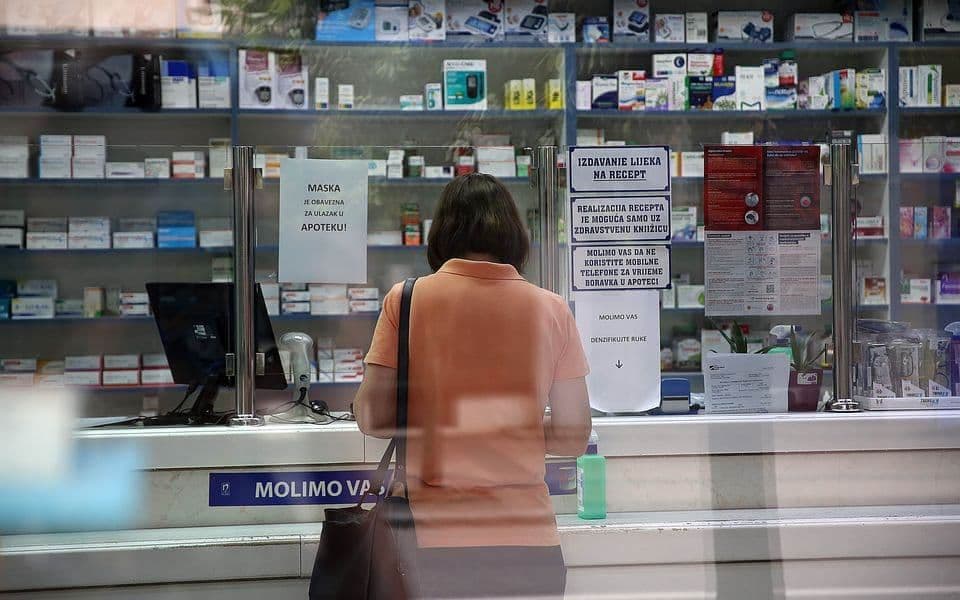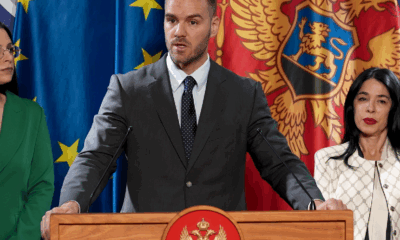Lifestyle
Rising Medication Costs Hit Pensioners and Chronic Patients Hard

Medication prices in Montenegro have surged dramatically, resulting in significant financial strain for pensioners and chronic patients. According to Sead Čirgić, the former director of the Fund for Health Insurance of Montenegro, these increases are primarily due to rising consumption rates and a lack of effective system control. He emphasized that the most vulnerable groups, particularly those most reliant on the healthcare system, are bearing the brunt of these hikes.
The current procurement and distribution system remains unchanged, with the medication list still recognized as one of the best in the region. Prescribing practices have not altered, and maximum medication prices are still regulated. The main changes contributing to price increases include populist programs, such as “Europe Now 1 and 2,” which have weakened healthcare accessibility. Furthermore, changes in the medication list now impose greater financial burdens on patients, compounded by the presence of over 100,000 foreigners in Montenegro who have the same healthcare rights as local insured individuals.
In stark contrast, price increases in the European Union are much lower, at just 2.1%, while the eurozone sees an increase of 1.6%. Montenegro, however, faces an alarming 14.5% surge in medication costs. Consumer spending on medications is projected to reach €60 million in 2024, a threefold increase compared to previous years. Čirgić highlights that these statistics reflect the effectiveness of the healthcare authorities and the government’s overall commitment to citizen health.
In response to inquiries about which medications have increased in price, the Fund for Health Insurance directed questions to the Official Gazette. Unfortunately, detailed information regarding specific price increases was not readily available on official websites. Fund representatives indicated that they rely on data from the Ministry of Health regarding price changes for medications on the prescription list under the Fund’s coverage.
The Fund clarified that the medication list is regulated under the Law on Mandatory Health Insurance. The most recent medication list, effective from June 1, 2025, includes a price reduction for 73 medications, while 21 medications have seen price increases. The Fund also addressed the process for reimbursements related to deficient medications purchased by insured individuals. Patients must submit receipts and supporting documentation to qualify for reimbursements, which can vary based on the medication’s availability and necessity.
Refunded amounts for deficient medications have been substantial in recent years. In 2023, the Fund received 8,549 reimbursement requests, resulting in expenditures of €370,946.60. The following year saw 7,374 requests and total reimbursements of €237,960.28. From January to July 2025, there have already been 4,158 requests, costing the Fund €146,954.04.
In addition to prescription medications, the price of supplements has also risen, with reports of increases ranging from €2 to €3 per product. Pharmacy employees have noted that medication costs in Montenegro are approximately 30% higher than in neighboring countries such as Bosnia, Serbia, and Albania.
The Ministry of Health has attributed these price increases to higher production costs, raw materials, energy, transport, and regulatory expenses. In March, the government amended the Law on Medications to limit maximum prices for prescription drugs not covered by the state, aiming to stem uncontrollable price inflation and improve accessibility for all patients.
Many pensioners are feeling the effects of these rising costs. Montenegro has around 131,000 pensioners, with the minimum pension set at €450 and the average at €548. For example, a pensioner from Podgorica, identified only as N.M., shared that she spends approximately €100 monthly on heart medication and supplements, a significant portion of her €580 pension.
Another pensioner, R.T., lamented that he spends around €170 monthly on medication related to various health issues. He expressed frustration with the healthcare system, stating that he receives minimal help from reimbursements.
Similarly, a retiree named S.Č. detailed his struggles after suffering a stroke, indicating that he spends nearly half his pension on necessary treatments and diagnostic tests. He emphasized that the reimbursement system offered little relief.
Pensioner D.P. mentioned ongoing gastrointestinal issues that required significant out-of-pocket expenses for procedures like gastroscopy, costing her €220, which she could not afford through public healthcare services.
These accounts illustrate the growing discontent among pensioners in Montenegro regarding healthcare costs, highlighting the urgent need for systemic reforms to address the affordability of necessary medications and treatments.
-

 Entertainment3 months ago
Entertainment3 months agoAnn Ming Reflects on ITV’s ‘I Fought the Law’ Drama
-

 Entertainment4 months ago
Entertainment4 months agoKate Garraway Sells £2 Million Home Amid Financial Struggles
-

 Health3 months ago
Health3 months agoKatie Price Faces New Health Concerns After Cancer Symptoms Resurface
-

 Entertainment3 months ago
Entertainment3 months agoCoronation Street’s Carl Webster Faces Trouble with New Affairs
-

 Entertainment3 months ago
Entertainment3 months agoWhere is Tinder Swindler Simon Leviev? Latest Updates Revealed
-

 World2 weeks ago
World2 weeks agoBailey Announces Heartbreaking Split from Rebecca After Reunion
-

 Entertainment4 months ago
Entertainment4 months agoMarkiplier Addresses AI Controversy During Livestream Response
-

 Entertainment2 weeks ago
Entertainment2 weeks agoCoronation Street Fans React as Todd Faces Heartbreaking Choice
-

 Science1 month ago
Science1 month agoBrian Cox Addresses Claims of Alien Probe in 3I/ATLAS Discovery
-

 Health4 months ago
Health4 months agoCarol Vorderman Reflects on Health Scare and Family Support
-

 Entertainment4 months ago
Entertainment4 months agoKim Cattrall Posts Cryptic Message After HBO’s Sequel Cancellation
-

 Entertainment3 months ago
Entertainment3 months agoOlivia Attwood Opens Up About Fallout with Former Best Friend





















